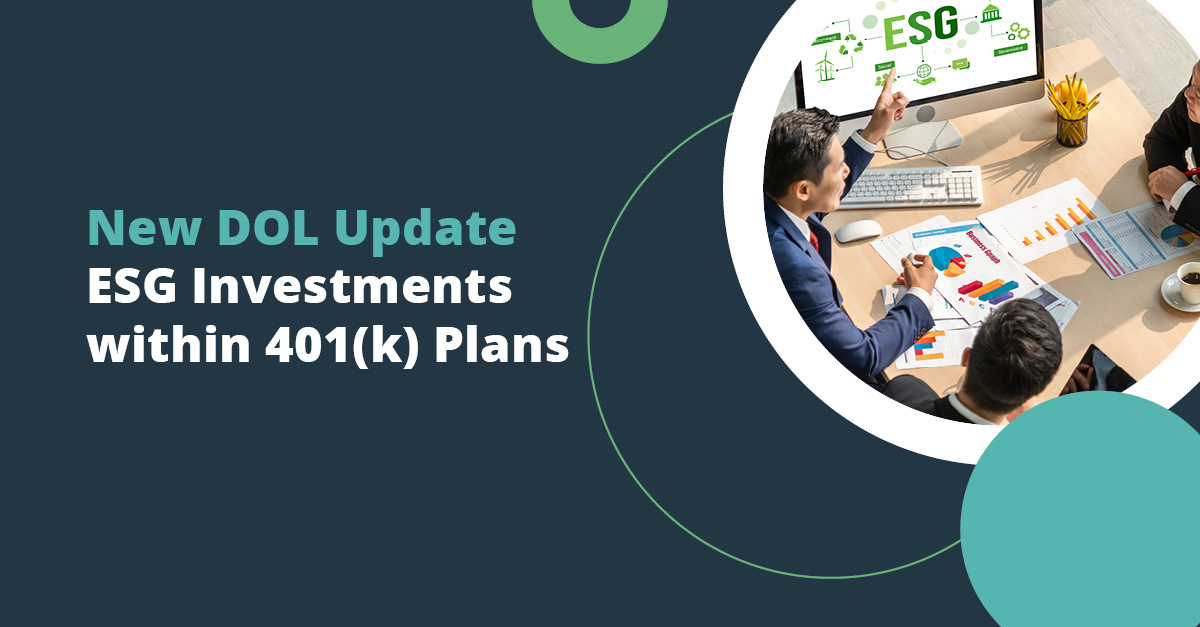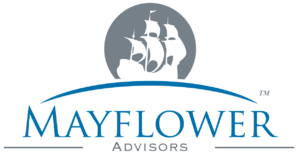
We are witnessing a big moment for environmental, social and governance (ESG) investing. Over the past few years, ESG investments have been growing in popularity; however previous rules about ESGs had many uncertain about how or if they could be used in retirement plans.
Following the 2020 rules, the Department of Labor received 900 written comments and over 20,000 petitions; it was clear that many wanted clear guidance and access to these funds. With 75% of plan sponsors wanting to know more about ESG options and 65% of plans intending to add an ESG option this year, it’s evident that climate change and other environmental, social and governance factors are important considerations for growing and protecting retirement savings.[1]
“Climate change and other environmental, social and governance factors can be useful for plan investors as they make decisions about how to best grow and protect the retirement savings of America’s workers,” said Assistant Secretary for Employee Benefits Security Lisa M. Gomez.
In the final rule, the DOL reminded plan fiduciaries that they still have the responsibility to act in the best interest of the plan participants and their beneficiaries. However, when acting as a responsible fiduciary, they may also consider climate change and other environmental, social and governance (ESG) factors when making investment decisions.
Other important things from the DOL guidance:
- Remove the (confusing) pecuniary rule created by the 2020 DOL guidance
- Stop treating QDIAs differently and clarified that default investment options should be treated the same as other investment options
- Amend the “tiebreaker” test, which permits fiduciaries to consider collateral benefits as tiebreakers in some circumstances and remove the special documentation requirement that is burdensome to fiduciaries.
- Amends certain sections on proxy voting to clarify that the right to vote on shareholder proposals is an important component of improving returns and avoiding risks.
Additionally, if employees are asking for ESG investment options and if offering those investments in the plan leads to greater participation and higher deferral rates, it could lead to greater retirement security, of which the DOL is in favor.
For more information on the final rule, click here.
If you’re interested in learning more about how we can help you incorporate ESG into your 401(k) investment line-up, please don’t hesitate to contact us.

265 Franklin Street 4th floor
Boston, MA 02109
(617) 259-1767
www.mayfloweradvisors.com
This information was developed as a general guide to educate plan sponsors and is not intended as authoritative guidance or tax/legal advice. Each plan has unique requirements, and you should consult your attorney or tax advisor for guidance on your specific situation. Securities offered by Registered Representatives through Private Client Services, Member FINRA/SIPC. Advisory products and services offered by investment advisor representatives through Mayflower Advisors, a registered investment advisor. Private Client Services and Mayflower Advisors are unaffiliated entities
[1] Plan Sponsor Attitudes. 13th Edition. Fidelity Investments. November 16, 2022.
